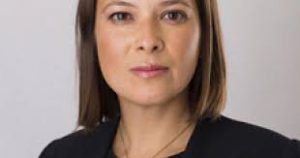What Role Can Australia Play in Advocating Human Rights Across South East Asia?
On Tuesday 20 March, the Institute welcomed Elaine Pearson – the Australia Director at Human Rights Watch – to discuss the role that Australia can play in advocating for human rights across South East Asia. The discussion was especially pertinent in light of the most recent ASEAN summit held in Sydney the previous weekend. Ms Pearson made a compelling case for Australia, as a country with reasonable clout in the region, to hold the South- East Asian nations to account for their human rights records.
Three main issues highlighted by Ms Pearson were the situations in Myanmar, the Philippines, and Cambodia. The crisis in Myanmar, which has drawn a significant amount of media attention in recent times, is the ethnic cleansing of the Rohingya people. Myanmar’s leader, Aung San Suu Kyi, who was formerly heralded as a great human rights advocate, recently called upon ASEAN leaders for humanitarian assistance in the Rakhine state. Ms Pearson criticised Aung San Suu Kyi’s comments, noting that the government has resisted previous offers of assistance and denied access to the area. The extermination of the opposition party in Cambodia and the so-called ‘War on Drugs’ in the Philippines were also points of contention. Ms Pearson called upon Australia to use its considerable influence within the international community to hold these nations to account, and decried the strategic interests that outweighed any human rights concerns in Australia’s foreign relations.

The talk elicited lively and impassioned discussion from the audience. Some concerns were raised regarding Australia’s own human rights record. While acknowledging that Human Rights Watch has called upon Australia itself to preserve and protect human rights within its own borders, Ms Pearson said this did not diminish Australia’s responsibility to hold its neighbours to account. An emphasis on human rights should be a cornerstone of relations, as opposed to an afterthought. Ms Pearson also underscored the private individual’s responsibility in civil society to influence human rights discourse in foreign policy.
Discussion acknowledged the very real complexities and realities of pursuing human rights in the conduct of international relations. Participants expressed the hope that discussion around these issues may strengthen the work of organisations such as Human Rights Watch, and empower our own civil society to bring to account perpetrators of human rights abuses, not only in our broader region, but within Australia itself.
Report by Diana Lambert
AIIA NSW intern